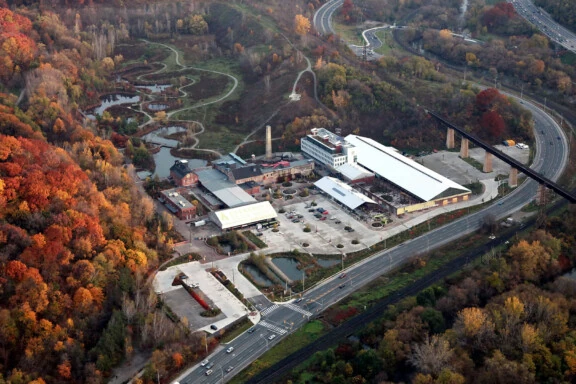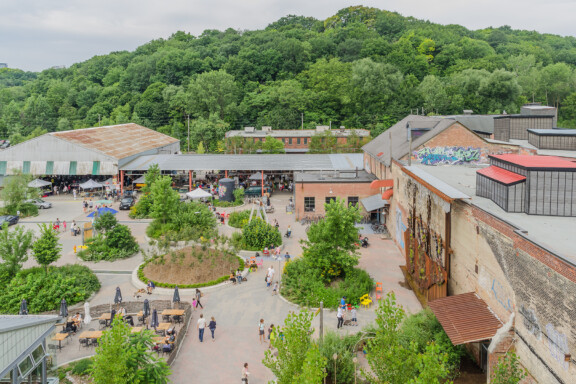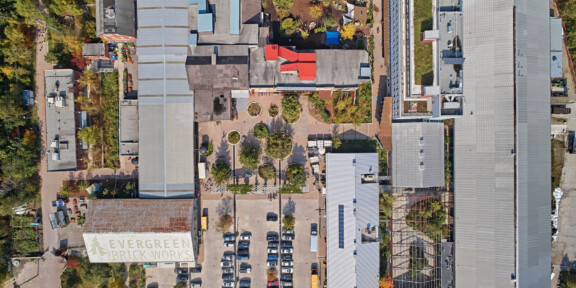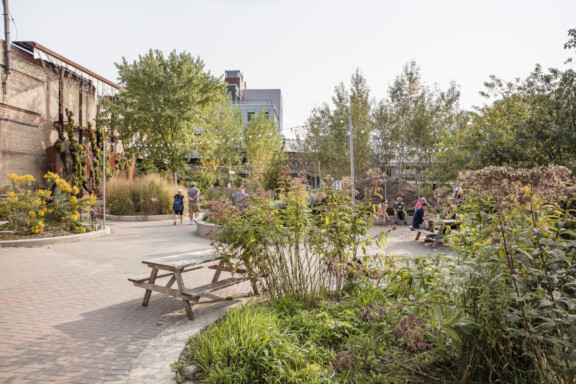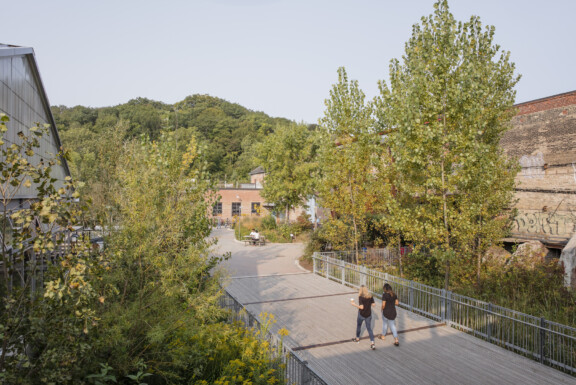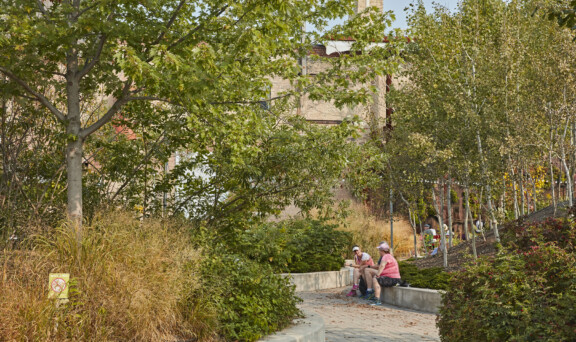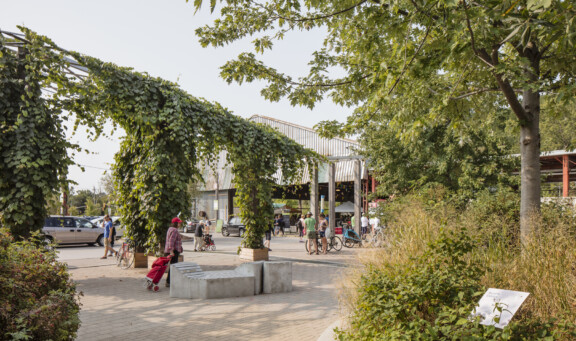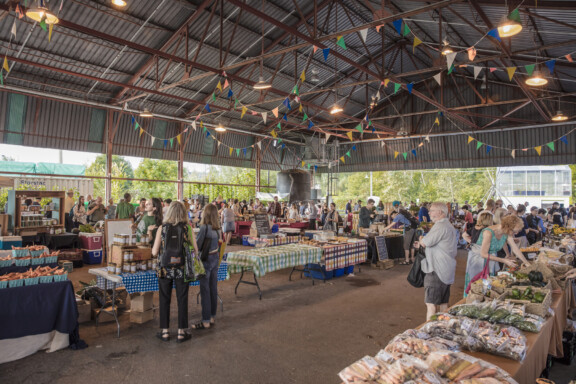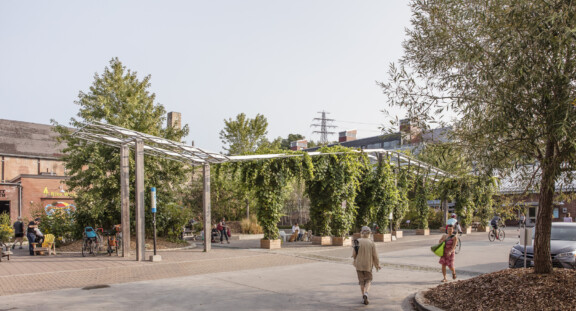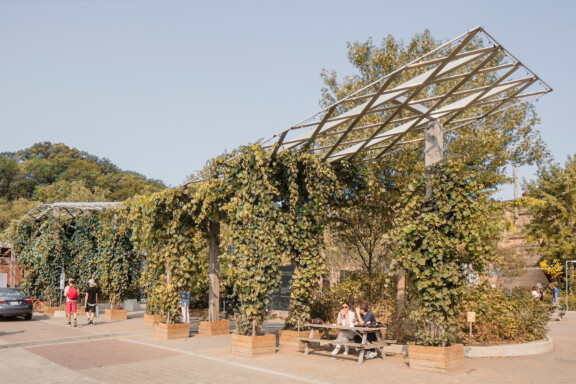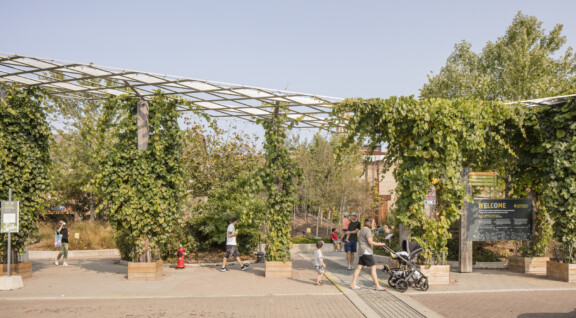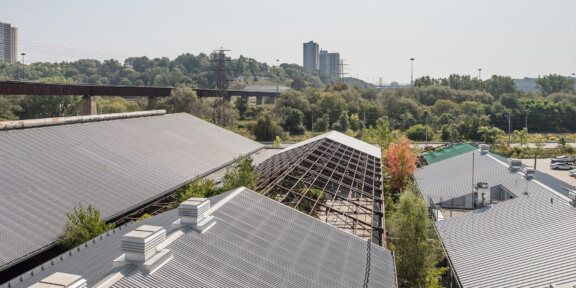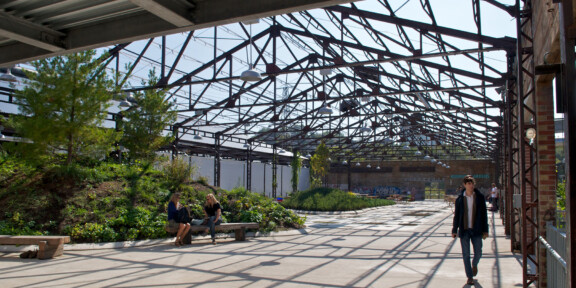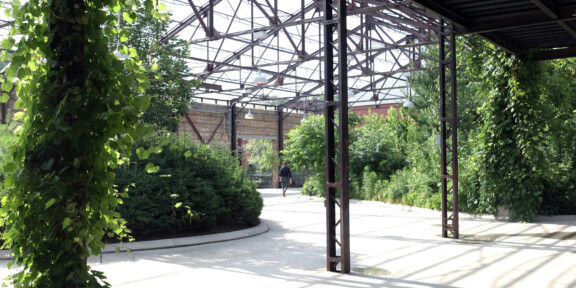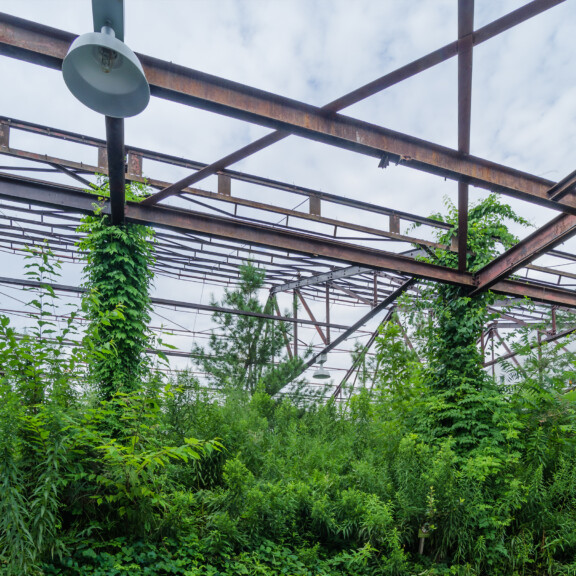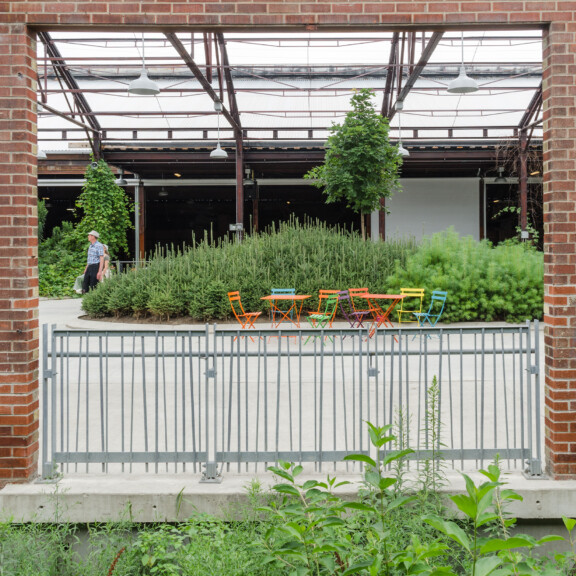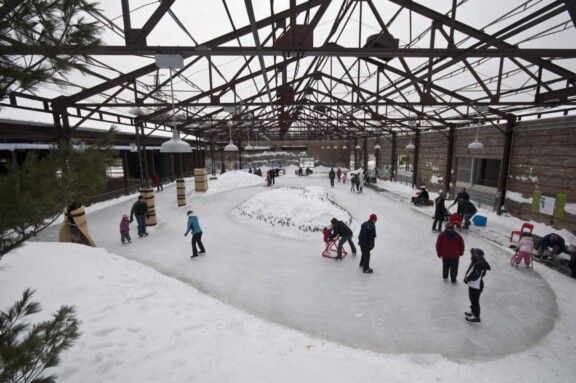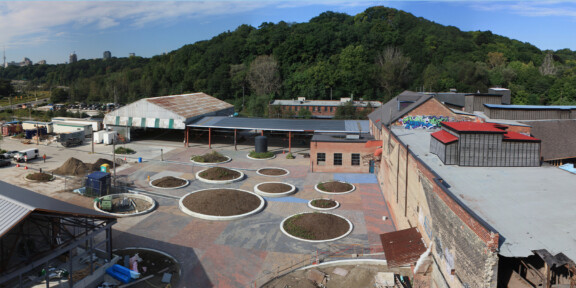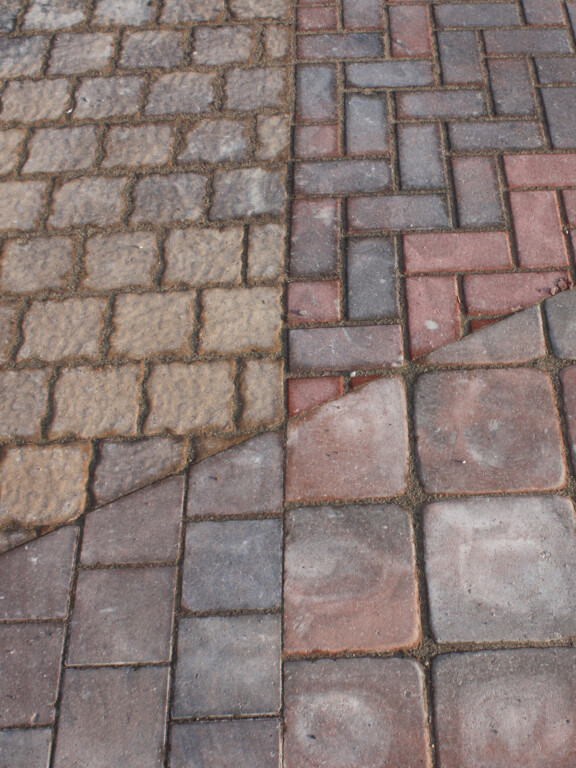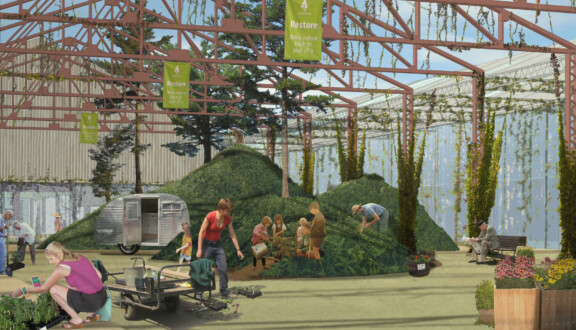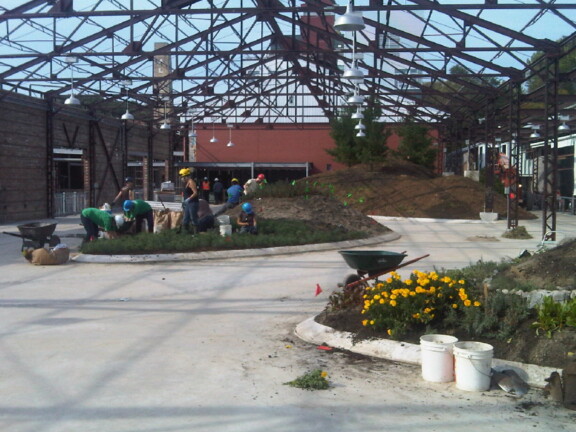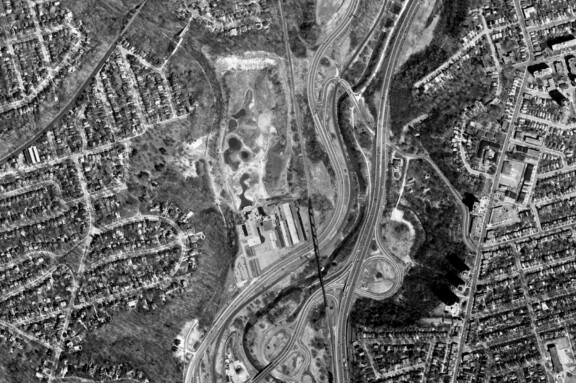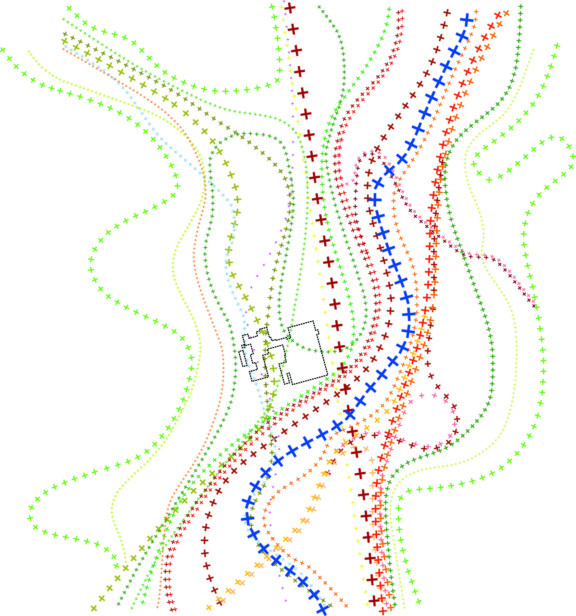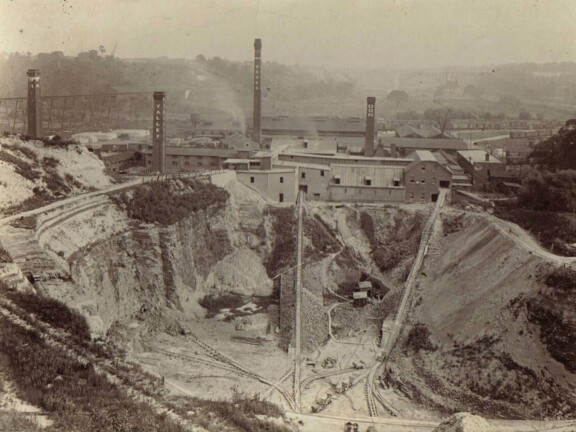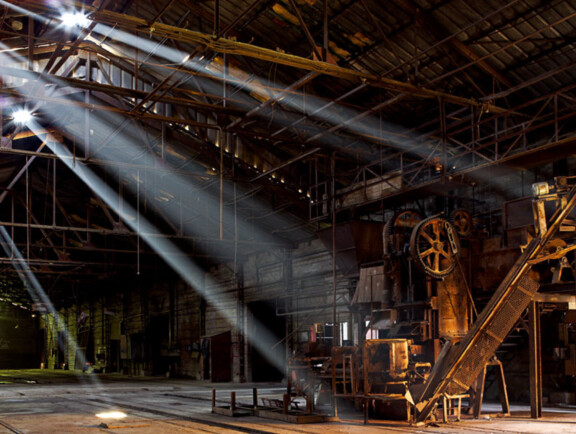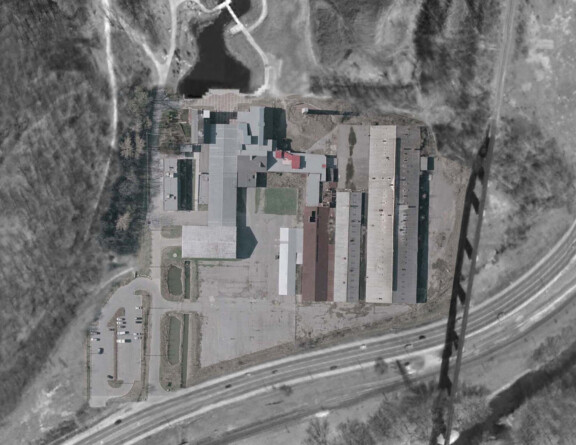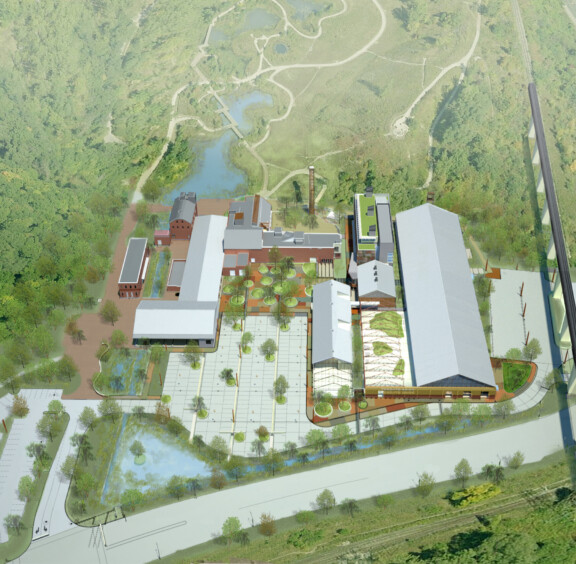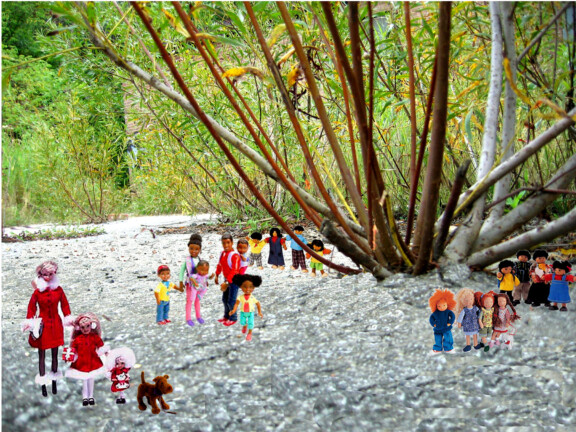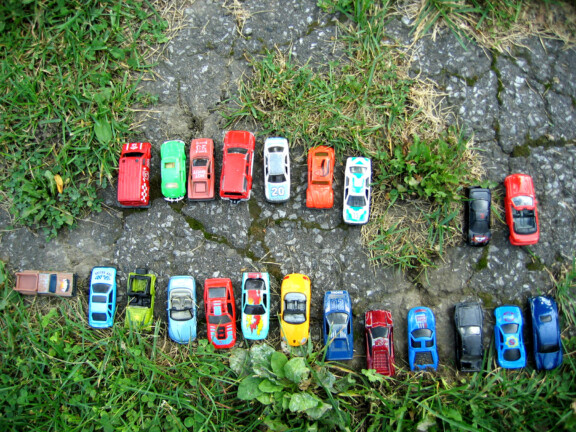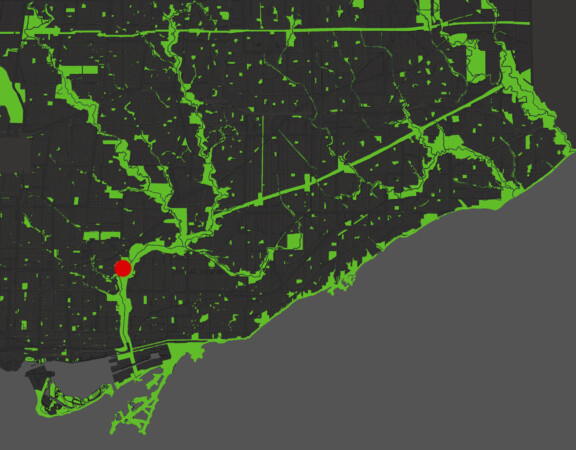Transformation of an industrial brick factory
Through the work of a multidisciplinary team, a quarter of the 40-acre Don Valley Brick Works park and post-industrial site is being redeveloped as an active, environmentally based community centre. The project was initialized by Evergreen, a Toronto non-profit organization dedicated to creating programs that reconnect city communities with local natural systems.
Founded in 1889, the Brick Works was home to one of the country’s most significant brick manufacturers for nearly a century. The massive grounds are incised with industrial quarries and are both a heritage site and a brownfield. In its new incarnation, the area will serve as a catalyst for new ideas on relationships between nature, individuals, and cities. An initial master plan completed by architectsAlliance envisages features that include a 110,000 square foot garden and nursery, a children’s discovery area, conference and event facilities, skating surfaces, an organic farmers’ market, spaces for an array of socially conscious organizations (including the offices of Evergreen), and continued development within the existing 40-acre wetlands and meadows park.
Our conceptual approach focuses on the transformation of this post-industrial ruin into a “green” site. Seeking to transcend the overused term “sustainability,” the proposal emphasizes the idea of trajectories of movement through the site – of water, cars, electricity, trains, and wildlife. The plan addresses a need for higher site porosity as a means to create a free-flowing system of sustainable components in, around, and through the area.
As part of a grant from the Tiffany + Co. Foundation, Evergreen has renamed the forecourt of the Evergreen Brickworks Tiffany Commons. In an effort to reinforce the distinct character of the space, an urban-scaled grape trellis has been constructed with an aluminum lattice supported on wooden poles. Establishing a strong identity for the threshold of the Evergreen Brickworks, the pergola will be planted with grapes to provide shade and serve as a demonstration for Evergreen’s urban agriculture mandate.
